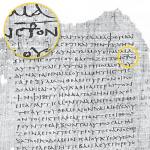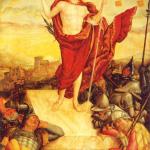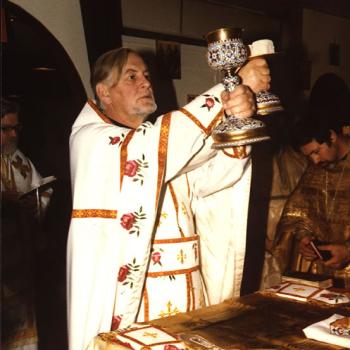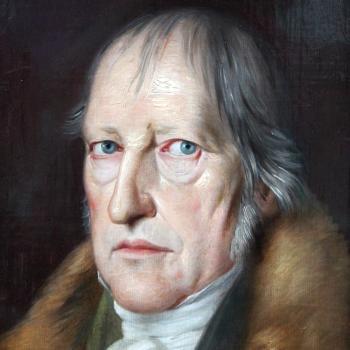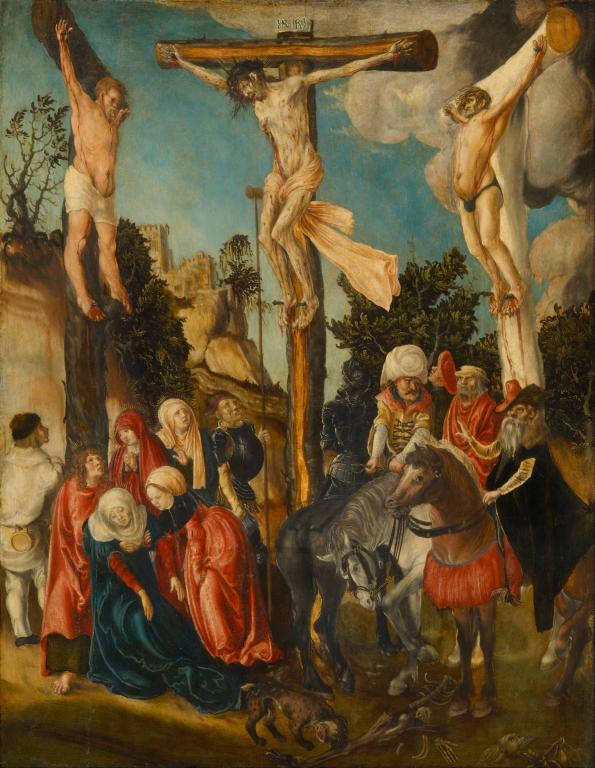
I just got back from our Good Friday service. Here in Australia we’re a day ahead of the U.S.A., so this happened on your Maundy Thursday. I’m writing this post so that it will show up on your Good Friday, our Saturday. The service at Bethlehem Lutheran Church in Adelaide was packed and extraordinarily moving.
We read the Passion narrative from the Gospel of John, punctuated by stanzas from that achingly beautiful and melancholy hymn “O, Dearest Jesus, What Law Hast Thou Broken.” (Listen to it here.) The sermon was from Isaiah 52:13-53:12, the Suffering Servant passage, which contains nearly everything about the Atonement. There is much in that long passage that I have overlooked, but which stood out this time. For example, this:
Out of the anguish of his soul he shall see and be satisfied;
by his knowledge shall the righteous one, my servant,
make many to be accounted righteous,
and he shall bear their iniquities. (Isaiah 53:11)
I don’t understand why so many theologians–not just liberals but evangelicals, even some Lutherans–want to downplay the atonement, especially how Christ suffered in our place. Those who say it’s “unjust” for God to punish His son for what we did, miss the point of the Gospel completely, and they have little inkling of the Trinity, separating the Persons and distancing them from each other, as if, in the death of the Second Person of the Trinity, God is not sacrificing Himself.
But what I want to offer you for your Good Friday meditation is a comment one of you made on this blog. Bill Powers, responding to my post on The Ironies of Holy Week, said this:
At the Cross we take it out on Christ, on the Father, all our disappointments, bitterness, complaints, anger, and hatred against God. We lay it all upon Him. For us to do this we must see Him as weak. It is against the weak and defenseless that our deep seated resentments have opportunity to be expressed. This is why Scripture is always talking about the weak and defenseless. It is about a struggle for power and dominion.
Yet we must hide from ourselves that this is just what we are doing. We must hide from ourselves that it is about the murder of God, for were this the case, we would be terrified. This is even more clear today than it was then when we have actually declared God to be dead. What exposes us to what we have done is the Resurrection, which results in our guilt and dread at the consequences of having been exposed.
At the Cross, we see a power struggle, a god of power. After the Resurrection, such a god would seek dreaded revenge. But what dies in the believer with Christ is the god of power, the theologian of glory, and what rises with Him is the God of Forgiveness and Love. We had to go through the Cross for this to happen, making us theologians of the Cross.
Postmodernists reduce virtually everything to “power.” But in the Cross, we see the most powerful being of all utterly and voluntarily bereft of power. The Theology of the Cross is an answer to postmodernists and a way to reach them.
Painting by Lucas Cranach the Elder [Public domain], via Wikimedia Commons



